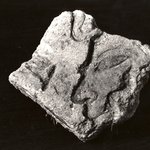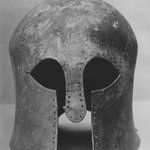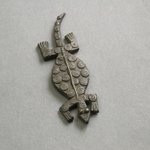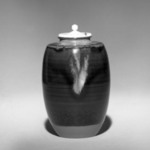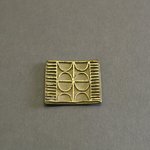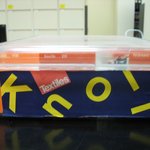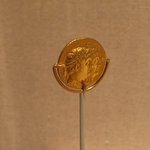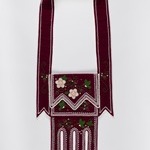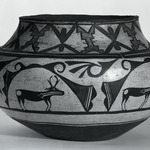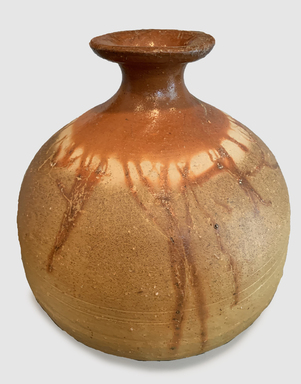

Mori Togaku (Japanese, born 1937). Sake Vessel (Kabura) in the Shape of a Turnip, ca. 1987. Bizen ware: stoneware with natural ash glaze and scorch marks, 11 7/16 × 11 13/16 in. (29 × 30 cm). Brooklyn Museum, Partial gift of Steven Korff and Marcia Van Wagner and Bertram H. Schaffner Asian Art Fund, 2020.1.4 (Photo: , CUR.2020.1.4_edited.jpg)
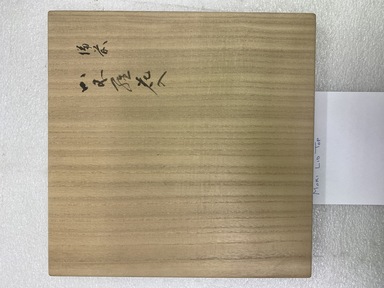
Mori Togaku (Japanese, born 1937). Sake Vessel (Kabura) in the Shape of a Turnip, ca. 1987. Bizen ware: stoneware with natural ash glaze and scorch marks, 11 7/16 × 11 13/16 in. (29 × 30 cm). Brooklyn Museum, Partial gift of Steven Korff and Marcia Van Wagner and Bertram H. Schaffner Asian Art Fund, 2020.1.4 (Photo: , CUR.2020.1.4_lid_top.jpg)
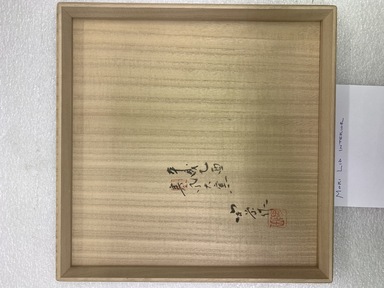
Mori Togaku (Japanese, born 1937). Sake Vessel (Kabura) in the Shape of a Turnip, ca. 1987. Bizen ware: stoneware with natural ash glaze and scorch marks, 11 7/16 × 11 13/16 in. (29 × 30 cm). Brooklyn Museum, Partial gift of Steven Korff and Marcia Van Wagner and Bertram H. Schaffner Asian Art Fund, 2020.1.4 (Photo: , CUR.2020.1.4_lid_interior.jpg)
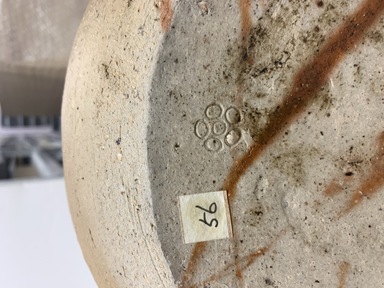
Mori Togaku (Japanese, born 1937). Sake Vessel (Kabura) in the Shape of a Turnip, ca. 1987. Bizen ware: stoneware with natural ash glaze and scorch marks, 11 7/16 × 11 13/16 in. (29 × 30 cm). Brooklyn Museum, Partial gift of Steven Korff and Marcia Van Wagner and Bertram H. Schaffner Asian Art Fund, 2020.1.4 (Photo: , CUR.2020.1.4_detail01.jpg)
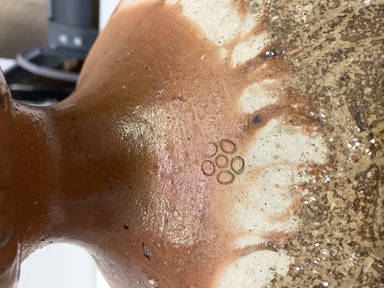
Mori Togaku (Japanese, born 1937). Sake Vessel (Kabura) in the Shape of a Turnip, ca. 1987. Bizen ware: stoneware with natural ash glaze and scorch marks, 11 7/16 × 11 13/16 in. (29 × 30 cm). Brooklyn Museum, Partial gift of Steven Korff and Marcia Van Wagner and Bertram H. Schaffner Asian Art Fund, 2020.1.4 (Photo: , CUR.2020.1.4_detail02.jpg)
Sake Vessel (Kabura) in the Shape of a Turnip
Mori Togaku
Asian Art

